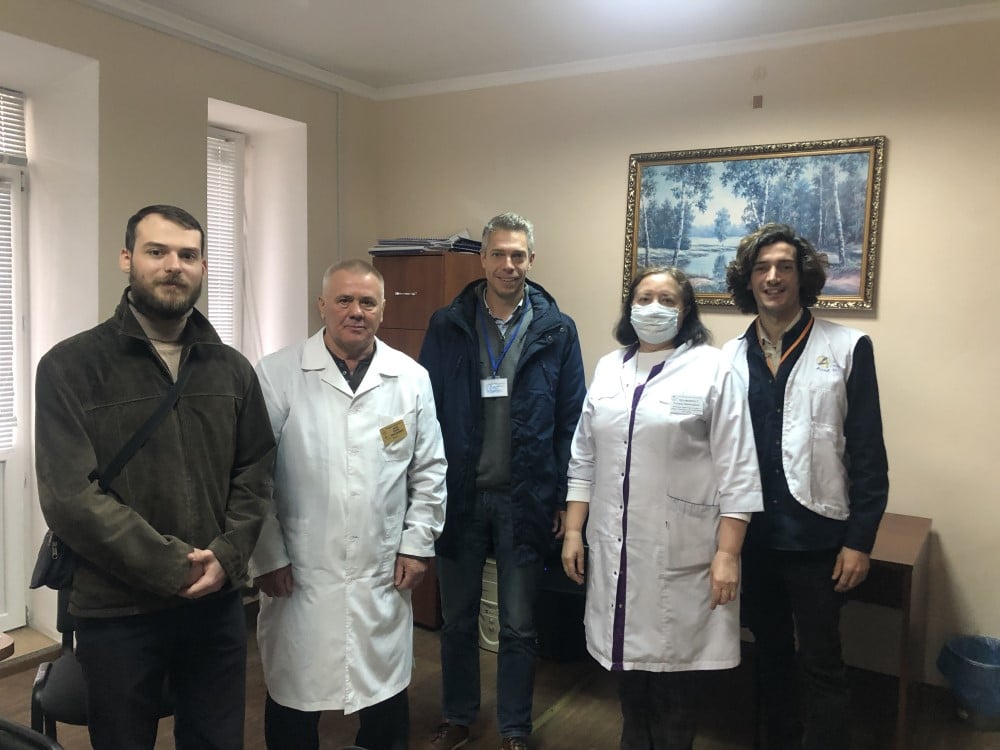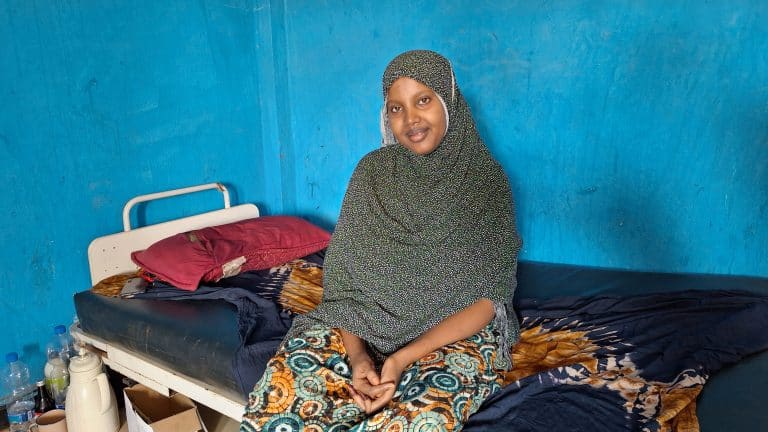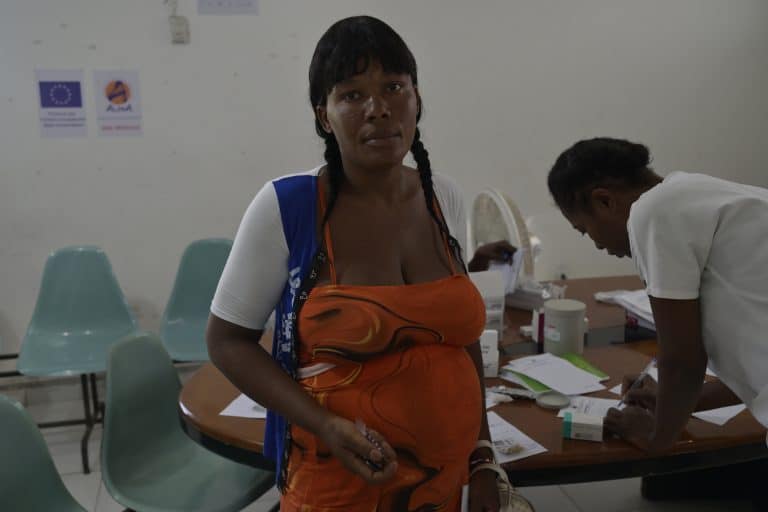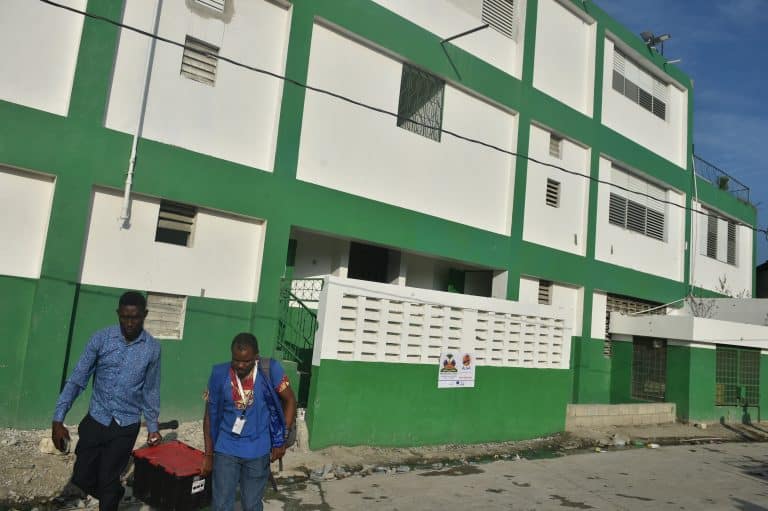Benoît Loop, Human Resources Director and Emergency Coordinator for the Ukraine mission
How did the arrival of ALIMA in Ukraine go?
ALIMA arrived in Ukraine at the end of March 2022. From the start, the coordination team was based in Odessa (the third largest city in the country, located in the south on the Black Sea) near Moldova. However our activities were in the oblast (region) of Mykolaïv, a 2.5 hour drive to the east. The town of Mykolaïv has been emptied of half its population since the war began.
Since its arrival, ALIMA has positioned itself in this region of southern Ukraine, where a large part of the population still lives between Mykolaiv and Kherson, a very active front line. The inhabitants of these towns and villages who have not fled, by choice, by lack of means or simply by incapacity, must continue to have access to health care. Among them are many isolated and vulnerable people who suffer from chronic diseases but have difficulty accessing treatment and medical consultations. They are exposed to complications and a dangerous risk of increased mortality.
In addition, Ministry of Health hospitals need medical supplies to absorb the increase in casualties and continue to provide care to all patients despite the difficulties of war. Finally, we have encountered people exposed to critical levels of violence, who have fled the fighting and bombing in their villages and are in immediate need of emergency psychological care.
This deployment phase is extremely complicated: we arrive and nothing is set up, nobody knows the organization, and we have limited information on which actors are present, and which sectors are covered. So, we had to work with the Ukrainian volunteer networks at first; then we contacted the Ministry of Health of Mykolaïv to develop a partnership.
What did you do in Ukraine?
Although I am the Human Resources Director at ALIMA, I went to Ukraine as an Emergency Coordinator. So, for 4 weeks, my role was to coordinate our intervention on site by refining the needs assessment and the operational strategy with the help of the medical coordinator. I also represented ALIMA in our discussions with local authorities and supervised security issues with the analysis of the context while managing the setting up of the team, including logistic, HR, and financial aspects. Overall, I had to check that everything was in order. It’s the equivalent of a head of mission.
According to you, what is the main challenge at the moment and what is the greatest success?
Currently, one of the challenges is HR. Human resources is an important challenge because of the specific humanitarian needs but also because ALIMA has set up regular rotations to allow staff to have sufficient rest time (missions last between 4 and 6 weeks on site). Another difficulty is related to the need for a visa to enter the Schengen area, which is a hindrance to the deployment of humanitarian staff.
Our success is to have very quickly brought medical aid to vulnerable communities in dangerous areas, and to the city’s hospitals, by establishing partnerships with local health authorities, large international institutions such as the WHO, other NGOs and local volunteer networks in a context that is completely new for ALIMA. We succeeded in delivering emergency medical aid according to the ALIMA model outside of Africa; It was an ambitious challenge, but it was met.

Antoine Maillard, clinical pharmacist
What are ALIMA’s activities in Ukraine?
In Ukraine, ALIMA works on three main axes:
- Surgical care support: We do not provide additional medical staff because there are the necessary health professionals on site, but rather we intervene in terms of providing equipment, medicines, and consumables. We provide a response to specific needs in terms of training, particularly in the surgical management of burns caused by the bombing. The idea is to give local medical and surgical teams the means to work with the influx of wounded people.
- Primary health care: In order to ensure continuity in the treatment of chronic pathologies, such as diabetes, hypertension, asthma, cardiovascular diseases, etc., ALIMA supports the demand for necessary medicines. In rural areas, although health centers remain functional, the problem of medical follow-up is even more pronounced due to the reduction in the number of health care personnel (who are either mobilized to the front or who have fled the fighting) and the isolation of certain persons due to the conflict. We are involved in strengthening cooperation between networks of local volunteers, social workers and these centers so that vulnerable people can be taken care of.
- Psychological health care. Following the assessments carried out by the ALIMA teams when they arrived on the ground, we found that the need for mental health care was an issue. In Mykolaïv, we hear bombings every day, which can affect populated areas and result in casualties; it is stressful. People are very resilient and life goes on, in spite of everything because people get used to it, but the need for psychological support is there. So we decided to coordinate the response in this area. Some psychologists have moved because of the conflict but they remain available and operational. We have therefore organized group consultations in centers for displaced people, individual consultations on a case-by-case basis according to needs, and online consultations for the most remote areas. We also provided training in psychological first aid so that volunteers and staff in the health centers would be able to take care of patients.
What was your role in Ukraine?
For 6 weeks, I had the role of medical coordinator. This consists of participating in the elaboration of the medical strategy, discussing the needs with the different partners, writing the list of medical orders, identifying the recruitments necessary for the implementation of the projects and defining the indicators and data to be monitored. But all this is not set in stone; the strategy will evolve over time.
We started off by accompanying volunteers as they distributed medicines. This allowed us to start support without delay, by offering treatment to patients who remained in their villages, less than 15 km from the front line.
Do you think that ALIMA’s presence in Ukraine is relevant?
ALIMA has become well established in just a few weeks because the needs are there. Our only duty is to ensure that we concentrate on activities that are pertinent and which we can control. For example, the WHO receives a lot of surgical kits, but their teams have not been able to reach certain areas to distribute them. Thanks to our networks, we were able to go the last mile to get these kits to the hospitals.
We can be proud of having respected the ALIMA model by working with organizations already on the ground, such as volunteer networks that have community relays in each village and good experience in the field. This is how we can reach people who are at risk of not receiving care. In my opinion, we should not focus on borders in terms of intervention, but really on the needs. Mental health, community work and continuity of primary care have been at the heart ofALIMA’s our work for years. Sure, Ukraine is across the sea, but we continue to respect our philosophy!





